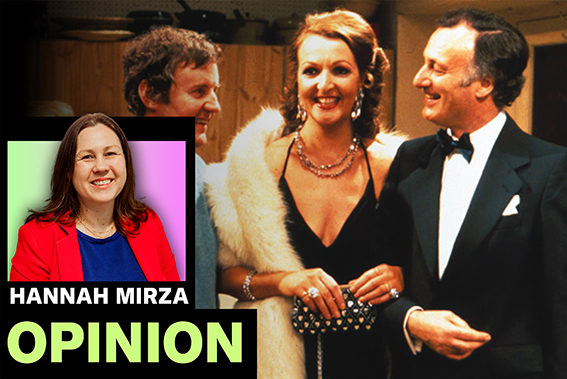The good (sustainable) life

Opinion
Advertising is a powerful tool in helping reframe what we should aspire to. How can brands promote sustainable behaviour even when they’re not promoting sustainable products?
Advertising is, by nature, aspirational. It shows products and services that brands want us to believe will improve our lives, but it also has a much wider impact.
What we see on screen is a representation of the life we could all lead — because, generally, people in ads have bigger houses, newer cars, comfier sofas and the latest tech. As a result, we want to be more like the people we see on screen. They appear to be fun/glamorous/relaxed/luxurious (delete as appropriate).
What these stories are missing right now is an aspirational lifestyle that’s sustainable too. Why shouldn’t every ad featuring a car use an electric one? Why shouldn’t every home have solar panels or heat pumps? Why don’t we see people sorting their recycling before they tuck into a ready meal? Or, even more basically, when you do the product shot, why not show the refill pouch or the larger pack size that reduces the footprint of your packaging?
Just as in social media, the stuff we see in our ads sends us micro signals that help to define our vision of a good life. My belief is that a good life is also a sustainable life and this is important for brands — even if they don’t have products or services that naturally attract a sustainable label.
The cultural role of brands is that, alongside the other media we consume, they help to set our “brain print” and expectations. Ads allow us to see into other people’s lives (even if they are fictional) and help reprogramme our aspirations.
Incorporating sustainable lifestyles within these messages helps showcase what the future could look like and how we might all behave then (and should probably start behaving today).
Moving on from eco-paralysis
This matters because, right now, too many brands are not just green-hushing — doing good work but not talking about it — but frankly stuck in eco-paralysis.
They are frightened by the swathes of new regulations on how they communicate and what they can fairly and legitimately claim.
More than anything, many brands don’t want to be accused of greenwashing. And so they can end up doing nothing.
Attempts to create new, more sustainable products take time and gains are incremental. If more brands were confidently talking about their incremental progress in everyday communications, it would drive the market for both consumers and competitors.
Even if you aren’t currently able to make your product or service more sustainable, you can still effect change through the positive aspirations you create in your marketing communications.
Help is at hand
There are plenty of resources out there to help, including these three.
>> Green Nudges has lots of examples of how advertising has enabled more sustainable behaviour, almost without people realising. It accesses the latest behavioural research to showcase how messaging has a huge impact. For example, simply using the right, indulgent words on menus can positively change the proportion of people who opt for the vegan or vegetarian (and low-carbon) choice.
>> Purpose Creatives has a project called the Good Life 2030, which has helped identify the ways in which advertising contributes to the sustainability crisis but also has examples of advertising that encourage us to consume less and be more fulfilled.
>> Research from the Yale Program on Climate Change Communication, international conservation organisation Rare and Meta’s Data for Good has compared six key behaviour changes that could have a substantial impact on global carbon emissions. The study covers 37 high-income, high-carbon-emitting countries and territories, and provides an unprecedented analysis of adoption rates and barriers to adoption of climate-friendly behaviours that brands can use to inspire their creative.
The images and messages that the ad industry creates have real impact. Back in 2020, Sir David Attenborough warned the world that averting eco-catastrophe was now a communications challenge, making it essential to convince both consumers and corporations to make changes.
We can all play our part and, in 2024, it’s more urgent than ever.
 Hannah Mirza is founder and CEO of Responsible Marketing Agency
Hannah Mirza is founder and CEO of Responsible Marketing Agency




